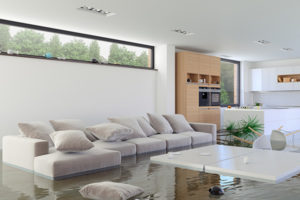Proudly serving East Alabama, Columbus GA, & Surrounding Areas
Menu
 If you’ve experienced water damage and are wondering how to clean up the mess from water damage, check out this five-step guide for how to deal with any water damage.If you or a loved one has been affected by water damage, you need to act fast. Water damage can be dangerous, especially if there is mold or rot involved. Here’s what you should do right now if water damage is affecting your home, and tips on how to prevent it from happening again in the future.
If you’ve experienced water damage and are wondering how to clean up the mess from water damage, check out this five-step guide for how to deal with any water damage.If you or a loved one has been affected by water damage, you need to act fast. Water damage can be dangerous, especially if there is mold or rot involved. Here’s what you should do right now if water damage is affecting your home, and tips on how to prevent it from happening again in the future.
As you can see, safety is the most important factor when it comes to dealing with water damage. Before you do anything else, you should make sure that no one is in danger. After all, if your house was on fire would you focus on putting out the fire or cleaning up after it? If the danger has passed and your home is safe for you and your family, then it’s time to take care of any damage caused by the water. Don’t put yourself in harm’s way though: call a professional if there’s any chance that going inside or fixing something yourself may injure you.
Now that we’ve got safety taken care of, let’s look at what needs to be done about the actual damage caused by the water!
The first thing you need to do is remove excess water by using old towels and mops. Soak up as much water as possible, and then put your towels in a dryer or hang them to dry. Wet carpeting can be dried by circulating air through it with a fan or blower. You can use an industrial-strength wet/dry vacuum cleaner to get rid of excess water, but you should make sure that the power cord is not plugged into an outlet that could become damaged if the vacuum comes in contact with the water. If your home has a sump pump, use that too—but only if it’s safe to do so! Once you’ve removed some of the standing water, attempt to circulate air through your home by opening windows and doors.
The next step is to dry the area. Turn on fans and open windows to let air circulate through the room. This will help evaporate moisture more quickly. If you have a dehumidifier, turn that on as well.
Drying the area quickly is essential to preventing mold growth on any wet surfaces. While it may be tempting to use a blow dryer or other heating mechanisms, don’t do this! Using heat from a blow dryer can cause excess damage to some of your belongings. Fans and open windows are really all you need here—the process just takes time and patience!
If your property has been damaged, you’re going to need to clean up and salvage what you can. Follow the steps below:
Once the damage to your space is under control, here are some things you can do to prevent more water damage in the future:
The second step is to call a professional water damage restoration service, like Restoration 1 of East Alabama. You might be tempted to handle the cleanup yourself, but the best way to minimize long-term damage is to hire a professional company. Dangers lurk in floodwaters and sewage backup, such as contamination by dangerous pathogens or exposure to harmful mold spores that can lead to respiratory illness.
It’s important that you call water damage restoration services as soon as possible because even if flooding or water buildup seems small, it can lead to extensive secondary damages that are costly and time-consuming to repair. In order for your home insurance policy to cover these damages, you’ll need professional documentation of the loss. At Restoration 1 East Alabama we have the equipment needed for water removal and structural drying in order for your home insurance company to cover all repair costs associated with your claim.
A common misconception is that calling an East Alabama water damage cleanup company is only necessary if the damage was caused by flood waters or serious rainfall. In reality, any water leak can cause structural damage to East Alabama homes, such as standing water or flooding that creates mold and mildew growth. A professional water cleanup service can help prevent the spread of damaging elements like mold, while also mitigating against future safety concerns.